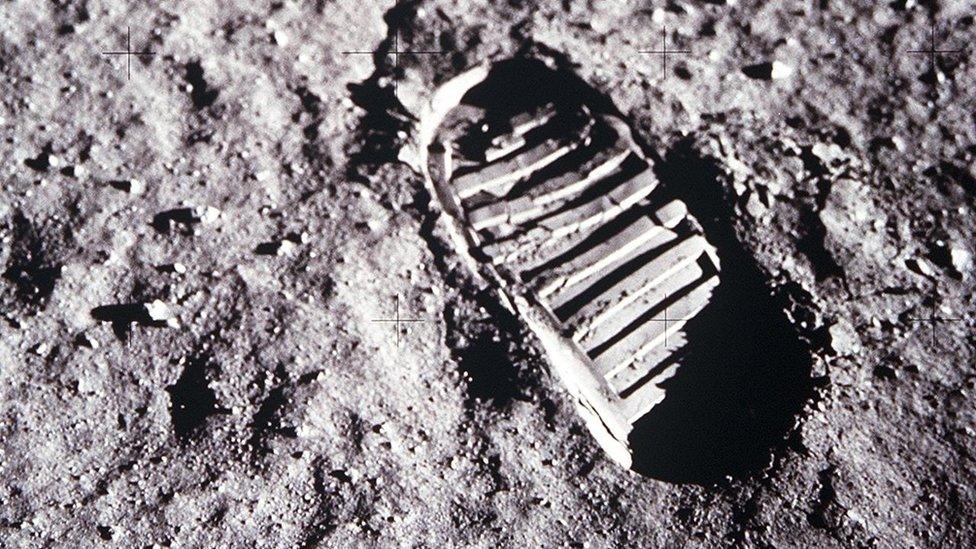The Moon landings: How one small step inspired a generation
- Published
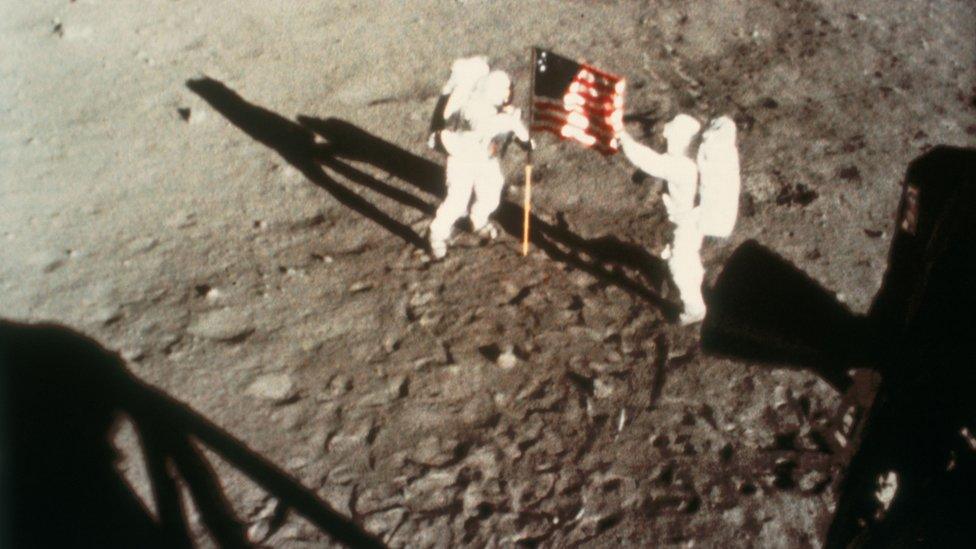
Neil Armstrong and Buzz Aldrin became the first humans to set foot on another planetary body on 20 July 1969
It is almost 50 years since Neil Armstrong and Buzz Aldrin first walked on the Moon.
It was an era-defining moment and almost everyone who had a TV set was glued to the latest from Nasa.
The Moon landings inspired a generation of scientists and engineers and a cultural outpouring - from songs like Space Oddity and Rocket Man to an episode of cult TV series The Simpsons.
Now, in the run-up to the anniversary, people are being asked to share their stories of what the Moon landings meant to them.
They may have old children's drawings, scrapbooks of newspaper cuttings or grainy photos of the family peering at the telly.
'Space cadets'
Chris Lee, now chief scientist at the UK Space Agency and 12 at the time, remembers being allowed to stay up very, very late at the start of the school holidays.
"Mum, Dad, my younger brother and I were gathered around a tiny black-and-white TV, but I don't recall too much about the late-night landing apart from the descent countdown. I certainly had no sense of how risky the landing had been.
"I do recall the long, long wait for the Moonwalk to then actually happen.
"My mum and brother fell asleep and Dad stayed with me for company."
Mr Lee was born in 1957, just before the launch of the Soviet Union's Sputnik satellite.
"I suppose I was always destined to be a space cadet," he says.
By 1969 he already had his own tiny telescope and had started an Apollo scrapbook from Apollo 8 onwards.
"I wish I still had this," he says.
Two years later he helped the school woodwork teacher construct a mini-observatory in the school grounds.
He hopes other families will have hung on to their own Moon landing archives and will upload them to a special website called Moonlanding Memories., external
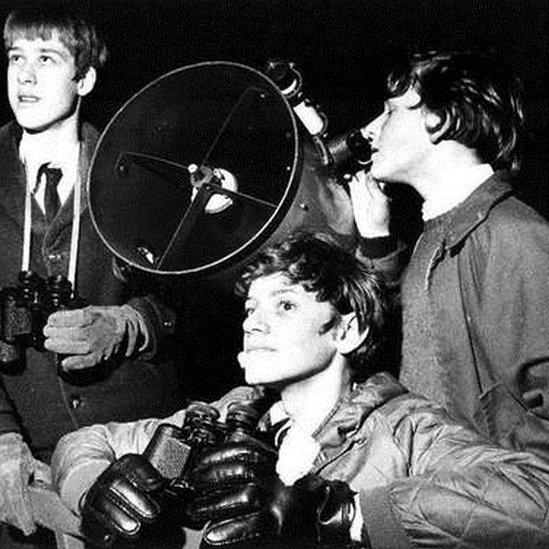
Chris Lee (centre) in 1971 at the school observatory he helped to build
The UK Space Agency, together with the Arts and Humanities Research Council (AHRC), will share the results of this crowd-sourced history project with the public on 20 July, 50 years to the day since the great event.
The idea is to explore how the Moon landings touched almost every aspect of popular culture, from cinema to art, literature to music, with people born later also asked how they too have gleaned artistic inspiration or have been encouraged into science and engineering careers.
Astronaut Tim Peake hopes the campaign will "not only help people reflect on the historic and cultural significance of this anniversary, but also inspire the next generation of scientists, engineers and astronauts".
Sue Horne, UK Space Agency head of space exploration, remembers being fascinated as a young child.
"I remember our headmistress, who disapproved of television, insisted that the school TV was on at lunchtime so we could watch the latest news on this historic event," she says.
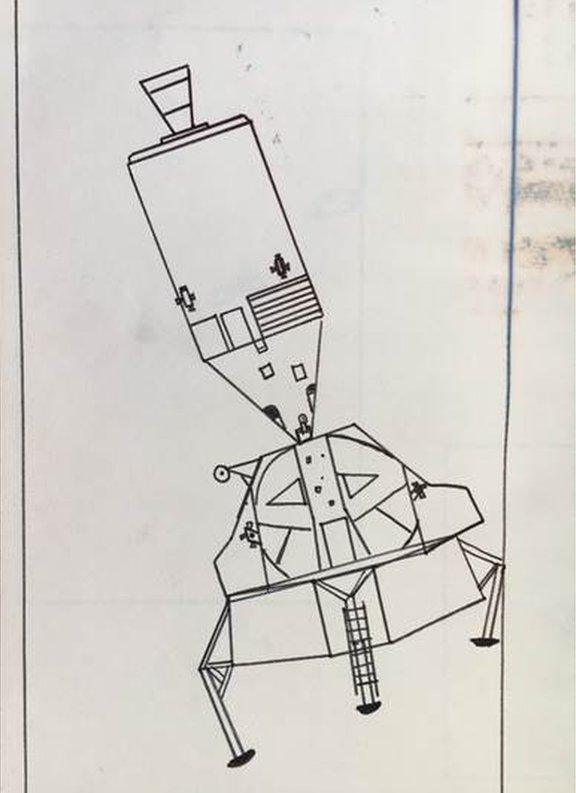
Aged 11 in 1969, Barry Smith did his own drawings and diagrams of the mission
Prof Barry Smith, leadership fellow for science and culture at AHRC, was 11 in 1969.
"The picture was so blurry that you could just make out the leg of the lunar module. I remember starting at it for ages," he says.
"It took a long time for Neil Armstrong to come out, I was mesmerised as I watched the white boot gingerly testing out the rungs of the ladder before eventually checking to see if the Moon could take the weight of his foot.
"It felt extraordinary knowing that humans would be sleeping on this remote lunar landscape.
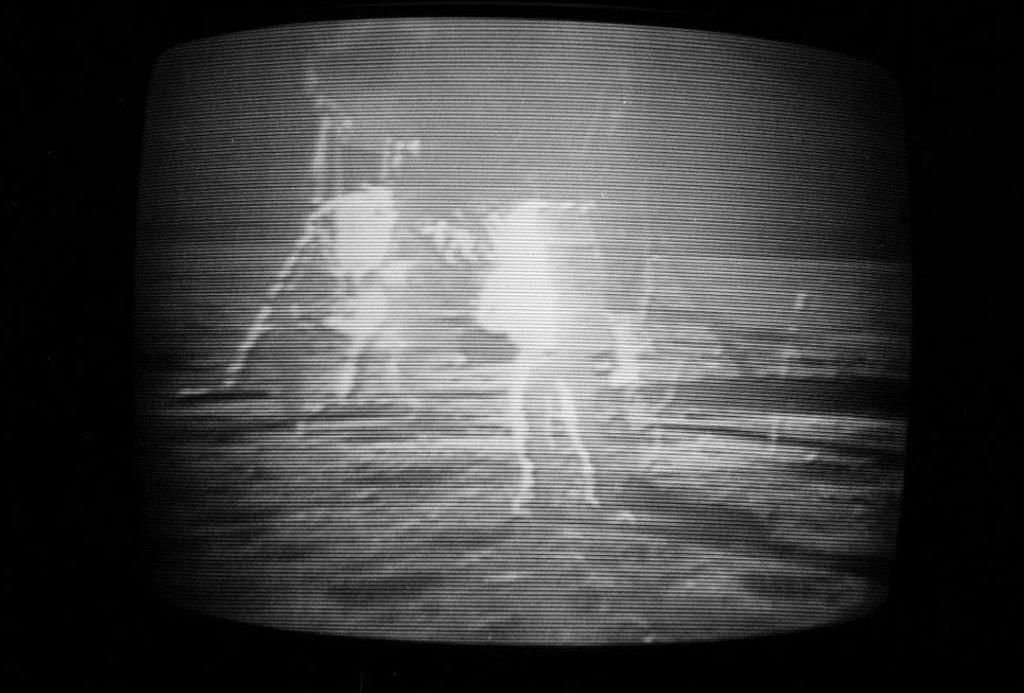
The images people saw on TV were "so blurry"
"It was a real heart-in-the-mouth moment and while it was hugely exciting, I remember thinking the next stage is whether these astronauts can get back to earth safely.
"For each mission I kept a daily diary updating a drawing book with descriptions and diagrams, recording every stage from the launch of the Saturn V rocket to the command and lunar modules hooking up, circling the Moon and the landing.
"Being a pre-internet age, it was hard to get information, so TV, newspapers and magazine images were crucial. They helped to seal this iconic moment in my memory and the memory of millions."
People have until 18 June to upload stories, memories and images to the website and to share them on social media using #moonmemories.
- Published15 May 2019
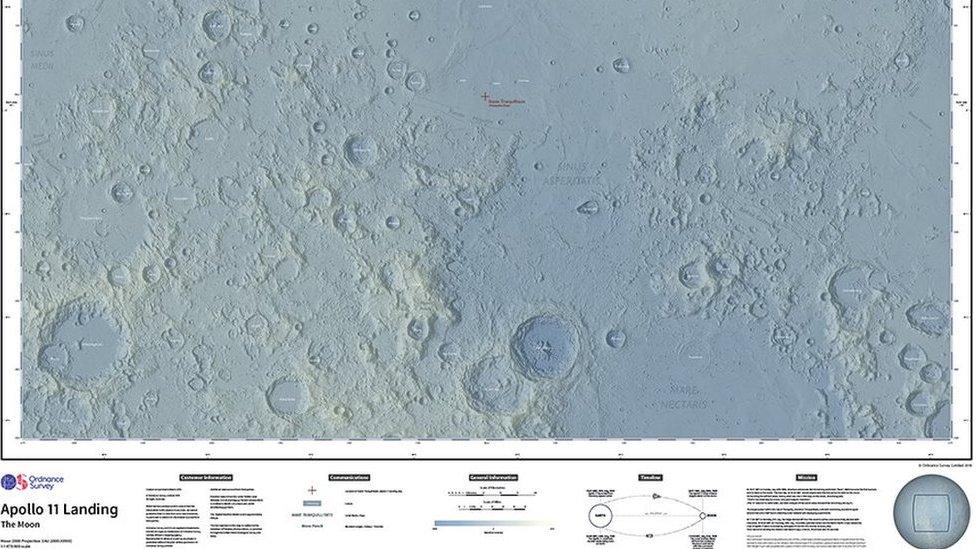
- Published12 May 2019
